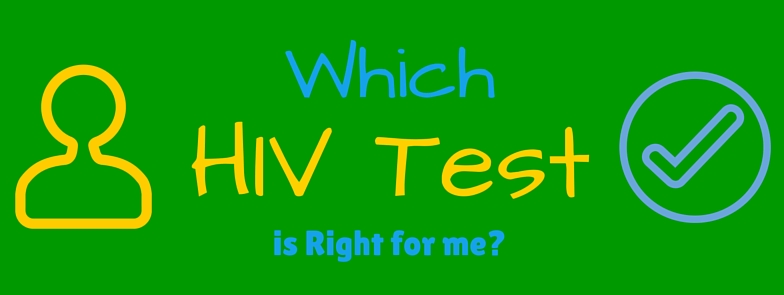Which HIV Test Is Right For Me?
Today, people like gays, bisexuals, drug-addicts, those living in disadvantaged neighbourhoods and young adults between the ages of 13-29 are at high-risk for HIV infection. If you are in the practice of sharing needles or having unprotected sex then you should get tested for HIV infection for atleast one time per annum.
There are different kind of HIV tests available in the market today and it’s sometimes difficult to decide that which HIV test is right for me. In this article, we will explain you the different types of HIV tests available today so it would be easy for you to make a decision.
We can divide these tests broadly in three categories:-
- RNA or NAT test
- Antibody tests.
- Antigen/antibody test
These HIV tests can be performed on blood, urine or oral fluid. Tests performed on blood are more accurate than oral fluid. In USA, these tests are available at medical clinics, hospitals, substance abuse treatment programs, Title X Family Planning Clinics, community health centres, AIDS services organizations. Even some pharmacies and mobile vans are also testing for HIV infection nowadays. Before going for an HIV test, you must understand what a window period is?
Window period
When you are infected from HIV then it will take few days in your body to make itself detectable. These ‘days’ are vary for different kind of tests. For example, if any person gets infected from HIV today then tests are not able to detect HIV for the next few days. Your window period depends on your respective test. A small table is given below for window periods of different tests. These window periods are same in almost 97% of cases but if you get HIV negative then make sure to have a repeat test after few days with doctor consultation to make it 100% sure if you are infected or not. In some cases, HIV takes more time to make itself detectable.
| Test | Window Period(days) |
| RNA Test | 9-11 |
| Antibody Test | 21-84 |
| Antibody/Antigen Test | 13-42 |
RNA Tests
If you are suspect to exposed from HIV virus recently in a single event then it is best to take RNA test. It is also called as NAT(nucleic acid test). It is not a routine HIV test because it is usually expensive than others. It detects HIV virus directly from the blood stream. This test is for early detection of virus and you can test it after 9 to 11 days of infection. This test gives an actual number of viruses present in your blood stream. You can visit STDcheck.com which is the only online STD testing service that provides FDA-approved RNA HIV Early Detection Test. The result of this test is usually accurate but in cases of negative HIV, it is best to take an additional antibody or antibody/antigen test because sometimes test result is negative because of a small number of the viruses present in the bloodstream.
Antibody Test
This is the most common HIV detection test. This test detects HIV antibodies in your blood, urine or oral fluid. Antibodies are proteins your body produces to fight HIV. It can take approximately 21-84 days to make enough antibodies in your body to make it detectable in antibody test. You can choose from different versions of antibody tests according to your needs and convenience. Visit STDcheck.com for its online HIV antibody test.
Rapid Test – It provides quick results usually in less than 30 minutes.
EIA tests – Enzyme immunoassay test is most commonly used test because of its simple methodology which gives result varies from 1 day to 1-2 weeks.
Home Access Tests – It is home collection kit. You prickle your finger for a blood sample at home and send it to a licenced lab by mail. Then you can call the lab as early as next working day to collect the result. Usually, it takes 3-7 days.
OraQuick HIV Test – This is a home test. It requires swabbing your mouth for an oral fluid sample. Then you use this sample on a kit to determine the result which is ready in 20 minutes.
Antigen/antibody test
Antigen/antibody test is also known as combination or fourth generation test. This test looks for both antibody and antigens. Antigens are part of the virus itself. So it is more accurate than a simple antibody test. It is able to detect the virus after 13-42 days of exposure.
If your result is HIV is NEGATIVE – If your test is negative then it is a good news. Your test didn’t detect HIV in your body but make sure to do a retest after one or two months to make it 100% sure Because of window period variation sometimes make it difficult for early HIV detection.
If your test is POSITIVE – if your test is positive then don’t panic. First thing is to do these follow-up tests to make it 100% sure if you have HIV or not:
- Antibody differentiation tests
- NAT test(if not done already)
- Western blot and indirect immunofluorescence assay
Having HIV in your blood doesn’t mean you have AIDS. It is the last stage of HIV infection. You can still control HIV for several decades with right medication and treatment. Many HIV detected people from 1980s are still living healthy and productive life while following correct medication regime. Good Luck…!!!


